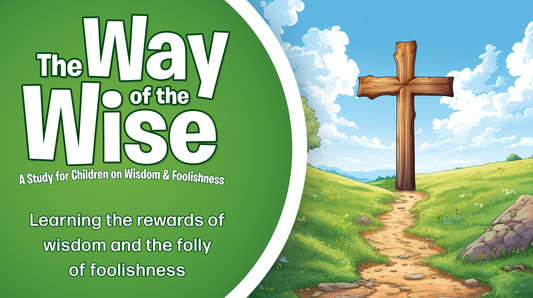-
Audience
-
Author
Blog

Newly Revised Midweek Curriculum Teaches Childr...
The book of Proverbs is a book of life-giving advice and ominous warning. The advice is to pursue wisdom, “making your ear attentive to wisdom and inclining your heart to understanding”...
Newly Revised Midweek Curriculum Teaches Childr...
The book of Proverbs is a book of life-giving advice and ominous warning. The advice is to pursue wisdom, “making your ear attentive to wisdom and inclining your heart to understanding”...

More Than a Story Is for More Than Children
It wasn’t until I was in my 20s that I realized I had huge gaps in my theological education. At that point, I had minimal exposure to the entire content...
More Than a Story Is for More Than Children
It wasn’t until I was in my 20s that I realized I had huge gaps in my theological education. At that point, I had minimal exposure to the entire content...

Nine Foundations for a Distinctly Christian Edu...
What comes to mind when you think of “Christian education”? What are its contours—its foundational convictions, breadth and depth of instruction, teaching methods, and ultimate goal? Does your thinking resonate...
Nine Foundations for a Distinctly Christian Edu...
What comes to mind when you think of “Christian education”? What are its contours—its foundational convictions, breadth and depth of instruction, teaching methods, and ultimate goal? Does your thinking resonate...

Pursuing the Greater Joy of the Next Generation
Amidst all the joys I've experienced with my grandchildren as they reach various milestones in life, there is one verse that comes to mind that reorients my joy and makes me...
Pursuing the Greater Joy of the Next Generation
Amidst all the joys I've experienced with my grandchildren as they reach various milestones in life, there is one verse that comes to mind that reorients my joy and makes me...

Prioritize Family Discipleship in the Year Ahead
Dads, as 2024 is kicking off, how’s your schedule looking? As various work commitments, travel plans, and children’s activities fill up slots, have you been able to protect time for...
Prioritize Family Discipleship in the Year Ahead
Dads, as 2024 is kicking off, how’s your schedule looking? As various work commitments, travel plans, and children’s activities fill up slots, have you been able to protect time for...

A Call to Encourage and Build up Your Ministry ...
In the month of January, the days are short, and the nights are long and cold (for some of us). The busy holiday season is over, and many of us...
A Call to Encourage and Build up Your Ministry ...
In the month of January, the days are short, and the nights are long and cold (for some of us). The busy holiday season is over, and many of us...





